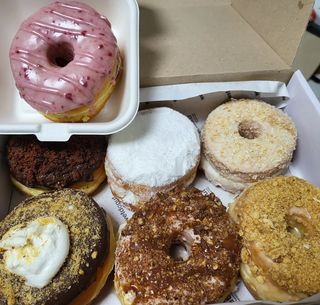Coffee is more than just a drink—it’s a daily ritual for millions of people around the world. From the first sip in the morning to the afternoon pick-me-up, coffee fuels our productivity, comforts us during breaks, and brings people together in cafes and homes alike. But what makes coffee so irresistible? Is it just the caffeine, or is there something deeper happening within our brains and bodies when we indulge in that beloved cup?
In this article, we’ll explore the fascinating science behind why we love coffee so much. From its biochemical effects on our brains to the psychological and social aspects, the reasons we crave coffee are as complex as the drink itself.
The Caffeine Connection: A Boost for Your Brain
The primary reason most people turn to coffee is its stimulating effect, and this is largely due to caffeine. Caffeine, a natural stimulant found in coffee beans, has the ability to affect your central nervous system in several ways.
How Caffeine Works:
- Blocks Adenosine: Caffeine works by blocking the action of adenosine, a neurotransmitter that promotes sleep. Adenosine levels naturally rise in the brain over the course of the day, making you feel more tired. By blocking these receptors, caffeine reduces fatigue and makes you feel more alert.
- Increases Dopamine: Caffeine also increases the levels of dopamine, a neurotransmitter associated with pleasure and reward. This is the same chemical that’s released when we experience joy or excitement, which is why drinking coffee can make us feel happier and more energized.
- Stimulates the Release of Adrenaline: Coffee also prompts the release of adrenaline, the “fight-or-flight” hormone. This increase in adrenaline gives us that “rush” feeling, heightening our energy levels and mental sharpness.
This combination of effects explains why coffee can boost our mood, improve concentration, and even increase our reaction times. It’s the ultimate productivity drink.
The Pleasure Principle: Why Coffee Feels Good
Beyond its stimulant properties, coffee triggers a number of pleasure-related responses in our brains, which may explain why we have such an emotional attachment to it.
The Role of Dopamine:
As mentioned earlier, coffee boosts dopamine levels, which are associated with feelings of pleasure and motivation. This gives us a sense of enjoyment, reinforcing the positive feelings we get when we drink coffee. This, in turn, encourages us to drink it again and again.
Comfort and Routine:
The ritual of brewing and drinking coffee is deeply comforting for many. The familiar smell of freshly ground coffee beans, the warmth of the cup in your hands, and the moment of relaxation when you take a sip all contribute to a sensory experience that feels good. It’s not just the caffeine that people crave but the entire routine that often comes with it.
Positive Associations:
Many people associate coffee with positive moments in their day—be it a relaxing morning routine, a social gathering with friends, or a productive work session. These memories create positive emotional connections to the drink, making it even more enjoyable and enticing.
Checkout: Top 5 Coffee Shops in Rhyl
The Social Factor: Coffee as a Bonding Ritual
Coffee is also an important social tool. In many cultures, coffee isn’t just about the caffeine boost; it’s about connection. Whether you’re meeting friends for a coffee catch-up or chatting with colleagues over a cup, coffee often plays a central role in socializing.
Coffee and Social Interaction:
- Coffee Shops as Gathering Spaces: Coffee shops provide a neutral, welcoming environment where people can come together, chat, and share experiences. The act of sharing a coffee is often linked to conversations, bonding, and connecting with others, which enhances our love for the beverage.
- Caffeine and Social Confidence: Some studies suggest that caffeine can boost social interaction by making people feel more confident and alert. This might explain why so many people enjoy meeting over a cup of coffee—it helps break the ice and facilitate conversation.
Read: The Art of Making the Perfect Espresso Shot
The Psychological Comfort of Coffee
Coffee can also serve as a psychological comfort in times of stress or anxiety. The ritual of brewing and sipping a hot drink has a calming, grounding effect on many people.
The Ritual and Mindfulness:
Taking a few minutes to brew a cup of coffee and savor it slowly can be a form of mindfulness. This moment of focus can offer a brief respite from the pressures of the day, helping people center themselves and reduce stress. Many people find comfort in the predictability and control that comes with making their favorite cup of coffee, especially when life feels chaotic.
Coffee as a Stress Reliever:
Interestingly, while caffeine can increase alertness, it can also help reduce the perception of stress in some people. This paradox can be attributed to the mental clarity and focus that caffeine brings, which can make stressful situations feel more manageable. The mental boost from coffee allows us to feel more in control, especially when tackling challenging tasks.
Checkout: 5 Coffee Trends That Are Taking Over the Café Scene
The Aroma Effect: Why Coffee Smells So Good
Have you ever walked into a café or kitchen and been instantly drawn in by the rich, warm smell of brewing coffee? There’s a scientific reason why the aroma of coffee is so enticing. The scent of coffee has been shown to activate areas of the brain associated with pleasure and reward, much like the smell of fresh-baked bread or a favorite dessert.
What Makes Coffee Smell So Good:
The aroma of coffee is created by the complex combination of compounds released during the roasting process. Over 800 aromatic compounds are produced as the coffee beans roast, giving the coffee its distinct smell. Studies suggest that the smell of coffee alone can trigger positive emotional responses, including feelings of warmth and comfort, even before you take a sip.
More About: A Beginner’s Guide to Understanding Coffee Roasts
Coffee and Its Long-Term Benefits: Why We Keep Coming Back
Aside from the immediate energy boost, coffee offers several long-term health benefits that might contribute to our love for it. Regular coffee consumption has been linked to a lower risk of developing certain diseases, such as Parkinson’s disease, type 2 diabetes, and some types of cancer.
Coffee as an Antioxidant:
Coffee is one of the richest sources of antioxidants in the modern diet. These antioxidants help fight oxidative stress in the body, which can reduce the risk of chronic illnesses and promote overall health. This makes drinking coffee not just a pleasure, but a potential contributor to long-term wellness.
Coffee’s Role in Mental Health:
In addition to boosting dopamine, coffee has been shown to have a positive effect on mood regulation. Some studies suggest that caffeine may help reduce the risk of depression and improve mental well-being over time. For many people, a cup of coffee serves as a small, daily act of self-care, giving both physical and emotional benefits.
Read More: The Health Benefits of Drinking Coffee Every Day
Conclusion: The Multifaceted Love for Coffee
So why do we love coffee so much? The answer lies in a combination of biological, psychological, and social factors. The stimulating effects of caffeine, the pleasurable experience it provides, the comfort of routine, the joy of sharing coffee with others, and even the sensory pleasure of its aroma all contribute to our deep connection with this beloved beverage.
Whether it’s the jolt of energy, the moment of relaxation, or the chance to connect with friends, coffee offers more than just a caffeine fix—it’s an experience that enhances our lives in so many ways. And it’s no wonder we keep coming back for more.
Frequently Ask Questions (FAQ’s)
Coffee contains caffeine, which blocks adenosine (a chemical that makes you feel sleepy) and boosts adrenaline and dopamine, increasing alertness.
Yes! Coffee stimulates the release of dopamine, the “feel-good” neurotransmitter, which can improve mood and provide a sense of pleasure.
The aroma of coffee comes from over 800 compounds released during roasting. These compounds trigger pleasure centers in the brain.
While coffee can lead to dependence due to caffeine, it’s not considered addictive in the same way as substances like nicotine or alcohol.
Coffee stimulates dopamine release and increases alertness, which can enhance focus, concentration, and mental clarity.





